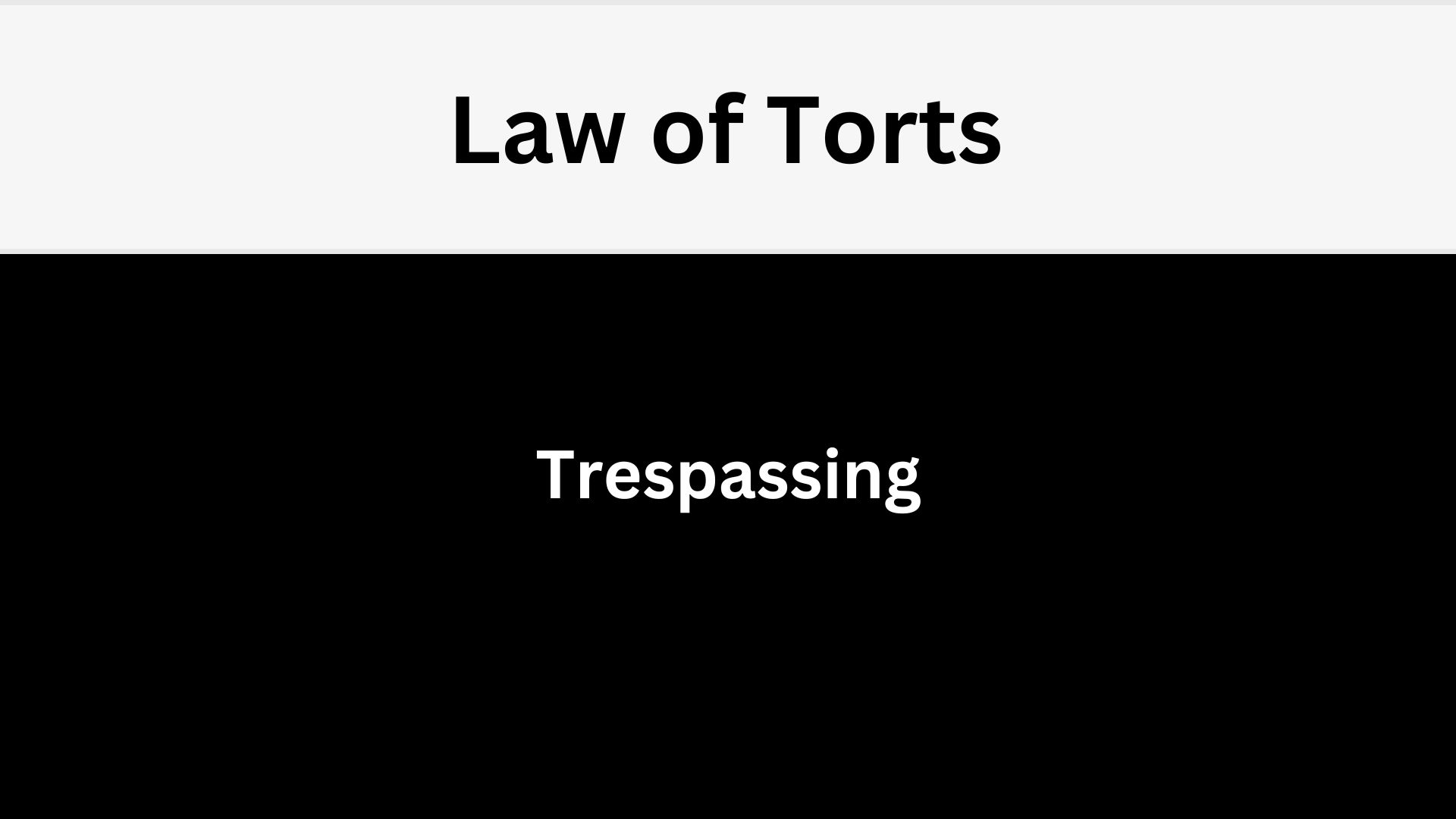Under Indian law of torts, the principles and concepts related to trespass to person are similar to those in general tort law. Here’s how trespass to person is understood and applied under Indian tort law:
Types of Trespass to Person in Indian Law :Trespass to Person in Law of Torts
- Assault: In Indian law, assault is defined as an intentional act by the defendant that causes the plaintiff to apprehend immediate harm or offensive contact. It does not require actual physical contact but focuses on the creation of fear or apprehension in the plaintiff.
- Battery: Battery under Indian law involves the intentional and unlawful touching of another person without their consent. It encompasses any physical contact that is offensive or harmful to the person’s dignity.
- False Imprisonment: False imprisonment in India refers to the unlawful restraint or confinement of a person against their will, without lawful justification. It involves depriving the person of their freedom of movement unlawfully.
Elements of Trespass to Person under Indian Law: Trespass to Person in Law of Torts
- Intentional Act: The defendant must have intended to commit the act that interfered with the plaintiff’s person or personal rights. Intent can be direct or inferred from the circumstances.
- Absence of Consent: The interference must occur without the plaintiff’s consent. Consent must be free, voluntary, and informed to be considered valid.
- Causation: The defendant’s act must directly cause harm or injury to the plaintiff. This harm can be physical, emotional, or a violation of personal rights.
Defenses to Trespass to Person under Indian Law
- Consent: Consent of the plaintiff to the act that caused the interference serves as a defense against a claim of trespass to person.
- Self-Defense: Justification for using reasonable force to defend oneself or others from immediate harm can be raised as a defense.
- Defense of Property: Protection of one’s property from unlawful interference may justify actions that might otherwise constitute trespass to person.
Remedies for Trespass to Person under Indian Law : Trespass to Person in Law of Torts
- Compensation (Damages): The primary remedy available to a plaintiff in a trespass to person case is monetary compensation (damages) awarded to compensate for the harm or injury suffered.
- Injunction: In cases where ongoing interference or threat exists, the court may issue an injunction to restrain the defendant from continuing the trespass or to prevent future trespasses.
Application and Case Law in India
- Rudul Sah v. State of Bihar (1983): The Supreme Court of India emphasized the seriousness of false imprisonment and awarded compensation to the victim for illegal detention by the police.
- Balram Prasad v. Kunal Saha & Ors. (2014): The case highlighted the issue of medical negligence leading to battery and wrongful death, underscoring the application of tort principles in personal injury cases.
Trespass to person, as interpreted and applied under Indian tort law, protects individuals’ physical integrity and personal autonomy against unwarranted interference, providing legal recourse for victims of such violations.

